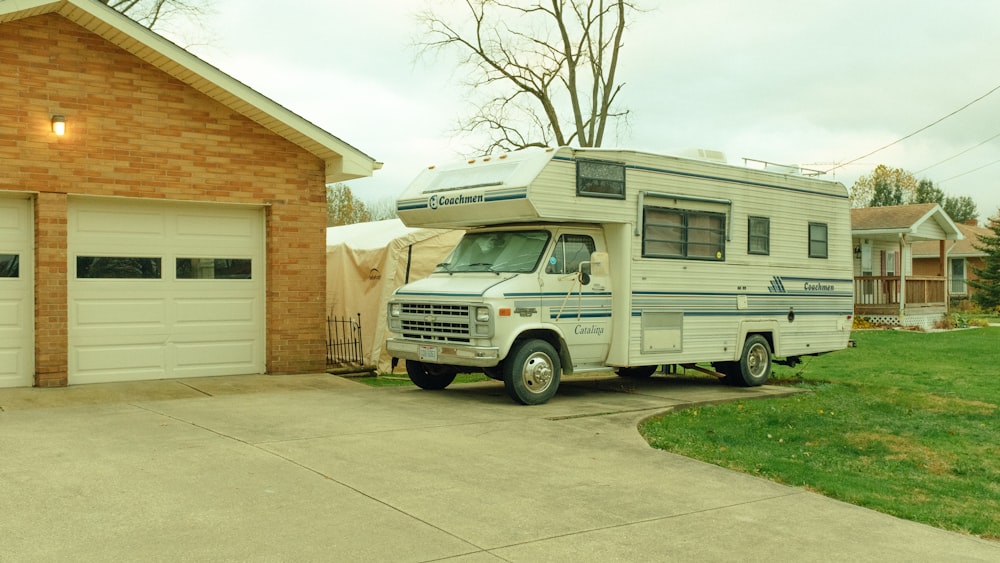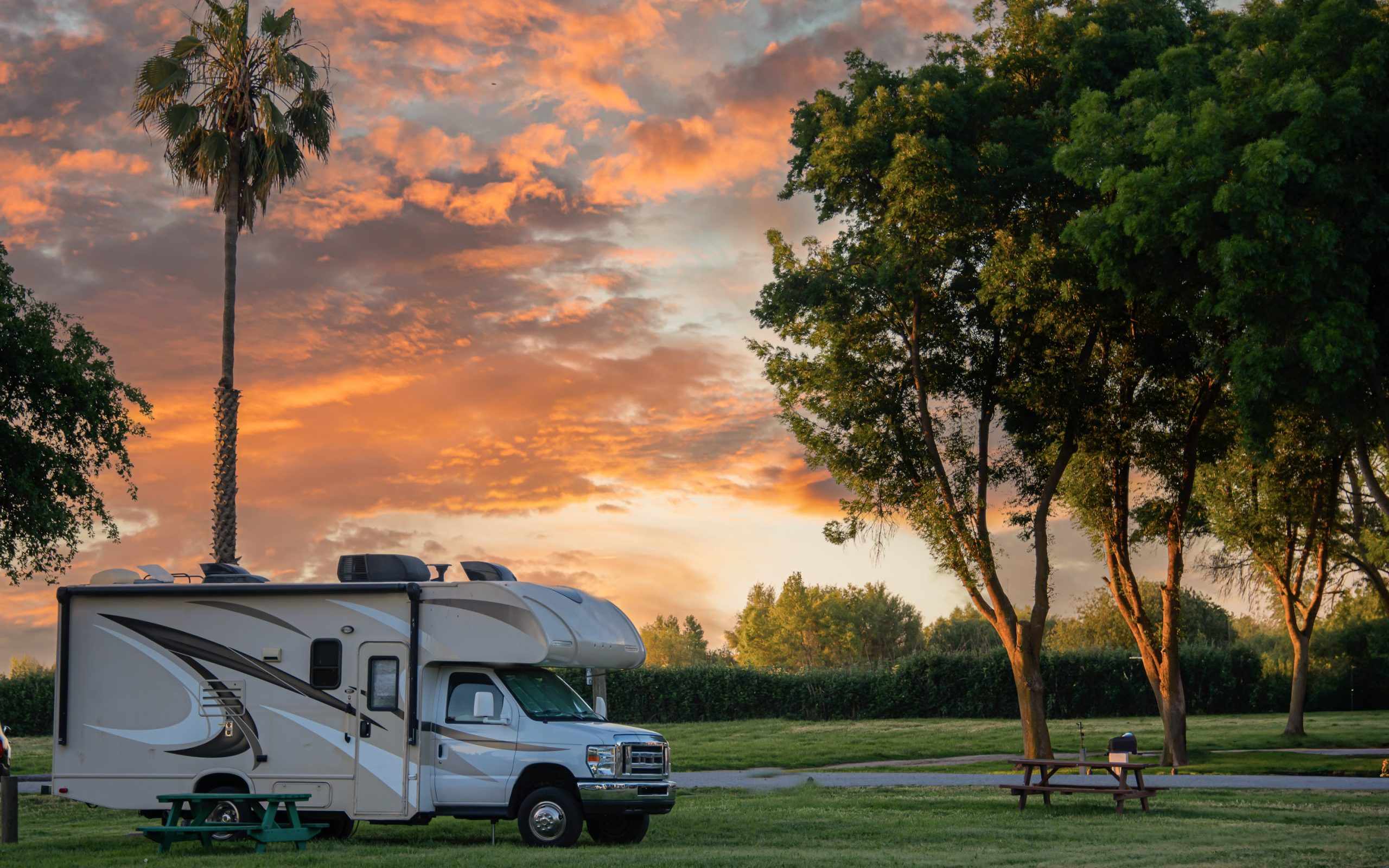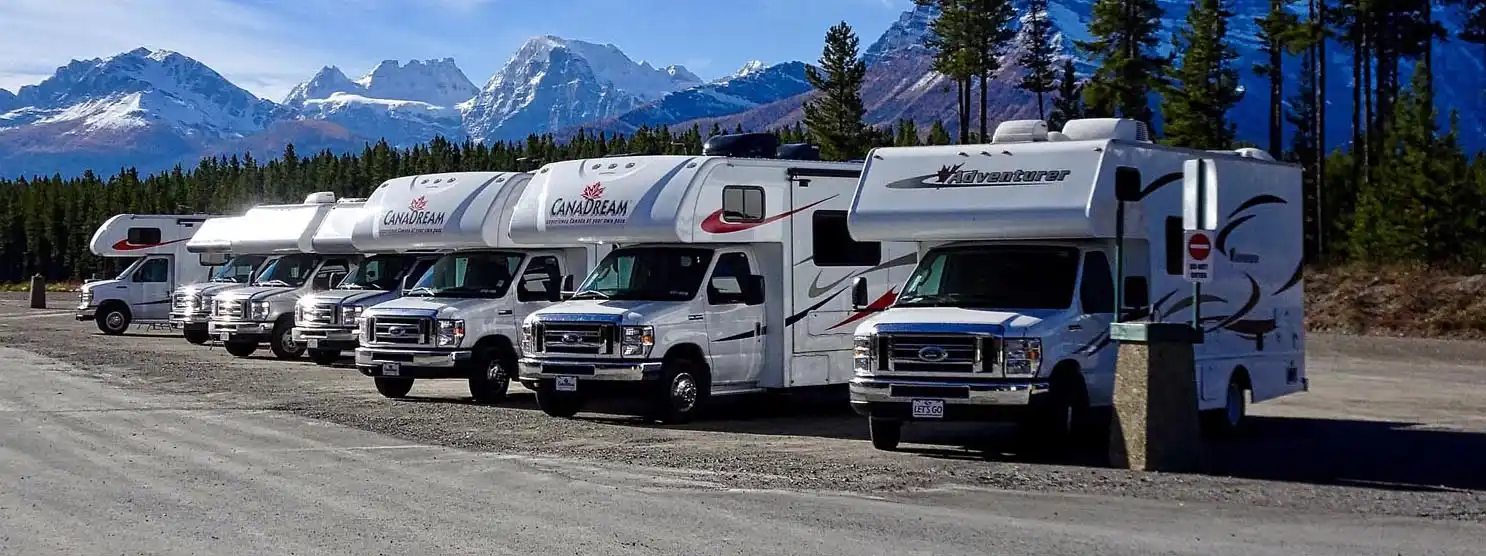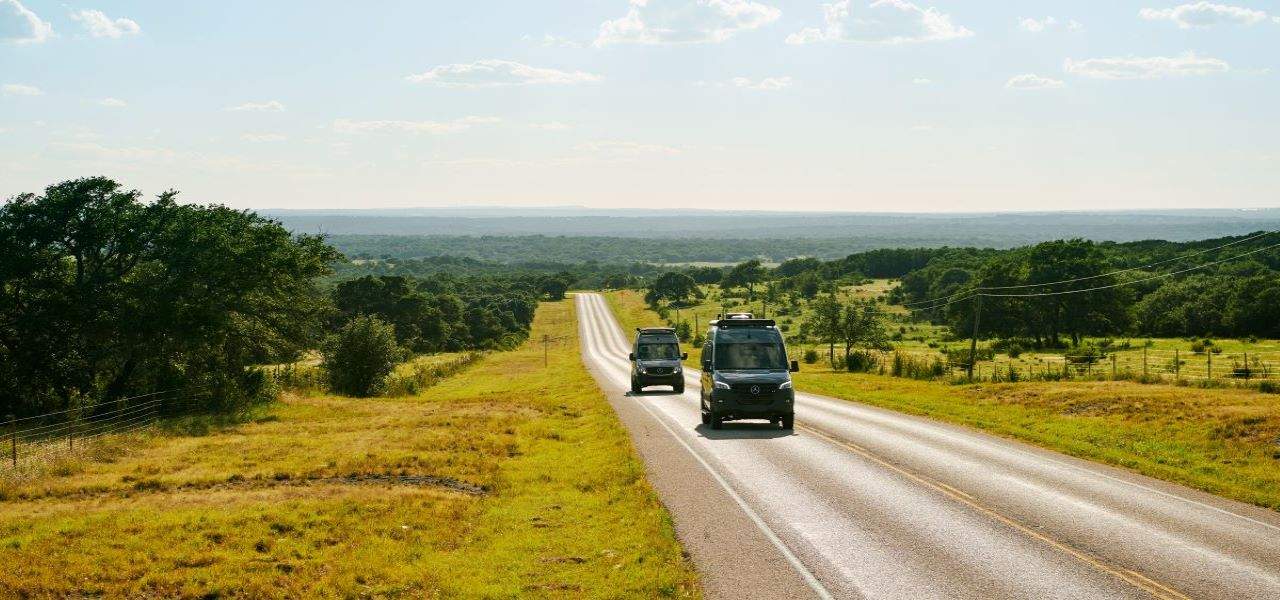Nowadays, there’s insurance for everything— our automobiles, homes, and even our pets! It only makes sense that you’d also protect the investment you’ve made in your RV. Even when it’s not required by law, insuring your RV is a good idea. Nothing puts a damper on an RV vacation quite like an accident, even if it’s just a minor fender bender. Luckily, if you have RV insurance, you can rest assured that if something were to happen to your recreational vehicle, you’d be covered financially.
Oh, and our sister biz, Roamly, can get you RV insurance that’ll save you a ton of dough + let you rent out your rig if you want to.
Roamly is also consistently rated as one of the best RV insurers in the country, so you can rest easy knowing we’ve got you covered.
If you’re new to RV ownership or have simply never taken out a policy, you may be wondering how much it costs to insure an RV. In this article, we’ll break down all of the factors that will influence RV insurance costs as well as the cost of not having insurance.
Buckle up!

RV Insurance Cost Factors
Like almost all insurance policies, RV insurance costs aren’t a set flat rate. Instead, they are determined by a number of factors, including:
- The make, model, and year of your RV
- The type of policy that you are taking out
- Where you live
- Your driving record
- How often you use your RV
- Where you store your RV when it’s not in use
Let’s take a closer look at these six elements.
The Make, Model, and Year of Your RV
Insurance policy prices are largely based on the value of your RV. A $150,000 Class A motorhome will be much more expensive to insure than a pop-up camper that costs only a few grand. This is because, if you get in an accident, the damages to or caused by a big rig will likely be much more costly to repair.
No matter which sort of RV you have, Roamly (that’s our sister business) can save you up to 35% on your insurance premium. You can get a quote in minutes right here.
These three things allow insurance companies to quickly determine what your camper is worth:
Types of Insurance
Costs can also vary widely depending on the type of coverage you obtain. The most popular insurance policies for RVs are:
- Liability coverage: This is often the bare minimum required by states. General liability insurance will cover damages done to other parties if you cause an accident.
- Uninsured and underinsured motorist: If someone without insurance or not enough insurance causes an accident, an uninsured motorist policy will help you pay for damages done to your RV.
- Collision: After your deductible is met, collision coverage will pay for damages that your vehicle incurs if you are at fault in an accident.
- Comprehensive: Not all accidents occur while driving. Comprehensive policies cover events like vandalism, animal accidents, acts of nature, fire, theft, and more.
- Valuables coverage: This is a type of add-on that some RVers include on their policy. In the event that items inside the RV are damaged or stolen, valuables coverage can help you recoup the money or purchase the goods again.
As a rule of thumb, the more your policy covers, the more expensive it is going to be. All other conditions equal, general liability coverage of an RV will be much less costly than full coverage.

The State You Live In
There are several reasons why your location affects your insurance rates.
For one, insurance requirements are regulated on a state level. States dictate what type of insurance drivers must have at a minimum, as well as how much. Secondly, insurers take weather, wildlife, and property crime rates of your location into consideration. States that experience frequent hail, tornadoes, or thunderstorms, for example, usually see more weather-related damage claims. Because of this, it’s typically more expensive to insure a vehicle or RV there.
The differences can be pretty significant. For example, Michigan is among the states with the most expensive insurance policies. Residents here can expect to pay nearly $4,490 a year in premiums for a Class A motorhome. Those who live in North Carolina, however, enjoy a much lower average of $860 a year.
Roamly is RVing insurance that can save you money no matter where you live.
Your Driving Record and Experience
Have a spotless driving record with years of experience behind the wheel of a motorhome? You’ll probably get a better rate than someone who has been in a few fender benders or has never driven a motorhome or pulled a camper before. Your driving record gives insurers an idea of how you’ll behave on the road.
Similar to auto insurance, other cost factors impact RV insurance pricing including the driver’s age, gender, and marital status.
How Often You Use Your RV
Insurers may ask how often you use or plan to use your RV. This is because more frequent use increases the likelihood of an accident. If you live and travel in your RV full-time, be sure to let your insurance company know. Full-timers often pay more for their insurance policy since their RV is both a vehicle and a full-time home.
It’s also important to note that many RV insurers don’t offer full-time RVer coverage. That’s why checking out an RV insurer like Roamly is important if you’re full-time. Roamly is all about covering full-timers with awesome rates.
Where Your RV Is Stored
What you do with your RV when it’s not in use may also play a role in the rates you receive. If you keep your RV parked in your driveway located in tornado alley, you will probably pay more than if you parked it in a secure storage facility.

The Cost of Not Insuring
Oftentimes, the question comes down to, can you afford not to have your RV insured?
If you have a motorhome, you are likely required by law to have insurance just like every other moving vehicle on the road. Even if you don’t experience an accident, getting caught without coverage could mean fines, tickets, and getting your RV impounded.
Even if coverage is not legally required for your camper, are you prepared to foot the bill if it gets totaled? This is a risk that you run by not covering your investment. The few hundred that you save by not having monthly premiums can quickly vanish if your RV is involved in a wreck.
Conclusion
These six things are the biggest factors determining the rate of your RV insurance policy. If you dread paying those monthly premiums, you’re not alone. But if you ever need to file a claim, insurance can save you thousands and make you glad that you have it.








